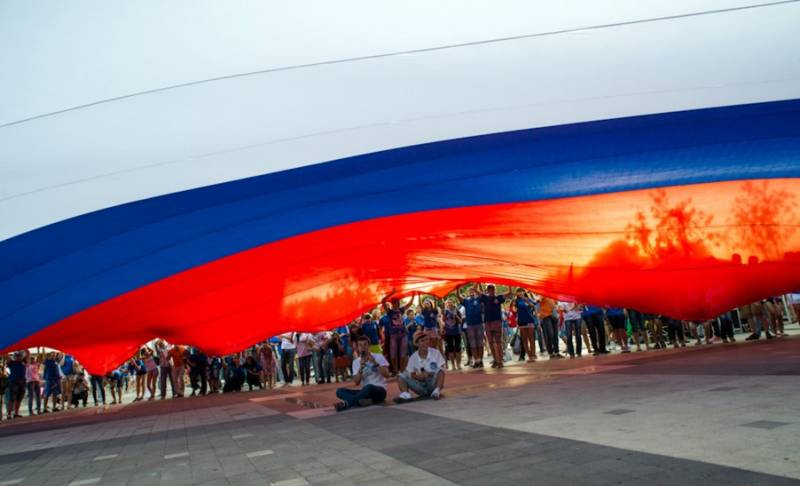When our country began to be called "Russia"
Our country is called Russia. This is a large multinational state. Representatives of the largest nationality in Russia call themselves Russian. Many more Russians live in the countries of near and far abroad.
In ancient times, Russia was called Rus, and its inhabitants - Rusich or Rusyns.
Let's try to figure out where these names came from.
Where did the Russian Land go from?
No one can really tell where the name "Rus" came from. Some believe that initially it had nothing to do with the Slavs. Moreover, the inhabitants of the Slavic lands called the Vikings dews. This word comes from the Scandinavian "robs", which means "rowers".
Others believe that the Byzantines gave us it on behalf of the mythical biblical people of Roche. It was a demonic tribe, whose attack from the north was one of the signs of the approaching end of the world. Imagine what happened when in 860 the Rus made the first raid on Constantinople!
The third version is even simpler. The right tributary of the Dnieper is called Ros. At first, local residents were called dew or dews, then other Slavs were called Rus, Rus or Rusyns.
It is not known which version is correct, but already in the XNUMXth century the lands between the Black and Baltic Seas began to be called Rus. Around the same time in Byzantium, the Old Russian state began to be called Russia.
Recently, there is more and more evidence of the existence along with Kievan Rus of another old Russian state, which was located to the east, in the south-east of Ukraine, as well as Belgorod, Voronezh and Kursk regions. It was a multinational state entity called Russian Kaganate. Most of its inhabitants were Slavs or Avars, and the ruler bore the title of Hagan, as is customary among the Turkic nomadic peoples.
Kievan Rus
In the ancient Russian state they did not understand what Kievan Rus means. This term appeared only in Soviet times. They designated all the old Russian lands. In recent years, it begins to disappear from everyday life, since no one likes this phrase.
In Ukraine, they are trying to be christened of their Russian origin, preferring to call ancient Rus "Kiev State" or "Ukraine-Rus."
The word “Kievskaya” hurts Russians, as they don’t want to remember that Kiev was the main city of their country. Looking at today's Kiev and everything that happens there, we can understand this attitude.
With the light hand of the Byzantines, the word "Russia" became known in other countries of the West and East. Over time, we got used to it and began to call our country Russia, and ourselves Russian.
In ancient times, Russia was called Rus, and its inhabitants - Rusich or Rusyns.
Let's try to figure out where these names came from.
Where did the Russian Land go from?
No one can really tell where the name "Rus" came from. Some believe that initially it had nothing to do with the Slavs. Moreover, the inhabitants of the Slavic lands called the Vikings dews. This word comes from the Scandinavian "robs", which means "rowers".
Others believe that the Byzantines gave us it on behalf of the mythical biblical people of Roche. It was a demonic tribe, whose attack from the north was one of the signs of the approaching end of the world. Imagine what happened when in 860 the Rus made the first raid on Constantinople!
The third version is even simpler. The right tributary of the Dnieper is called Ros. At first, local residents were called dew or dews, then other Slavs were called Rus, Rus or Rusyns.
It is not known which version is correct, but already in the XNUMXth century the lands between the Black and Baltic Seas began to be called Rus. Around the same time in Byzantium, the Old Russian state began to be called Russia.
Recently, there is more and more evidence of the existence along with Kievan Rus of another old Russian state, which was located to the east, in the south-east of Ukraine, as well as Belgorod, Voronezh and Kursk regions. It was a multinational state entity called Russian Kaganate. Most of its inhabitants were Slavs or Avars, and the ruler bore the title of Hagan, as is customary among the Turkic nomadic peoples.
Kievan Rus
In the ancient Russian state they did not understand what Kievan Rus means. This term appeared only in Soviet times. They designated all the old Russian lands. In recent years, it begins to disappear from everyday life, since no one likes this phrase.
In Ukraine, they are trying to be christened of their Russian origin, preferring to call ancient Rus "Kiev State" or "Ukraine-Rus."
The word “Kievskaya” hurts Russians, as they don’t want to remember that Kiev was the main city of their country. Looking at today's Kiev and everything that happens there, we can understand this attitude.
With the light hand of the Byzantines, the word "Russia" became known in other countries of the West and East. Over time, we got used to it and began to call our country Russia, and ourselves Russian.
- https://cloudfront.net/

Information